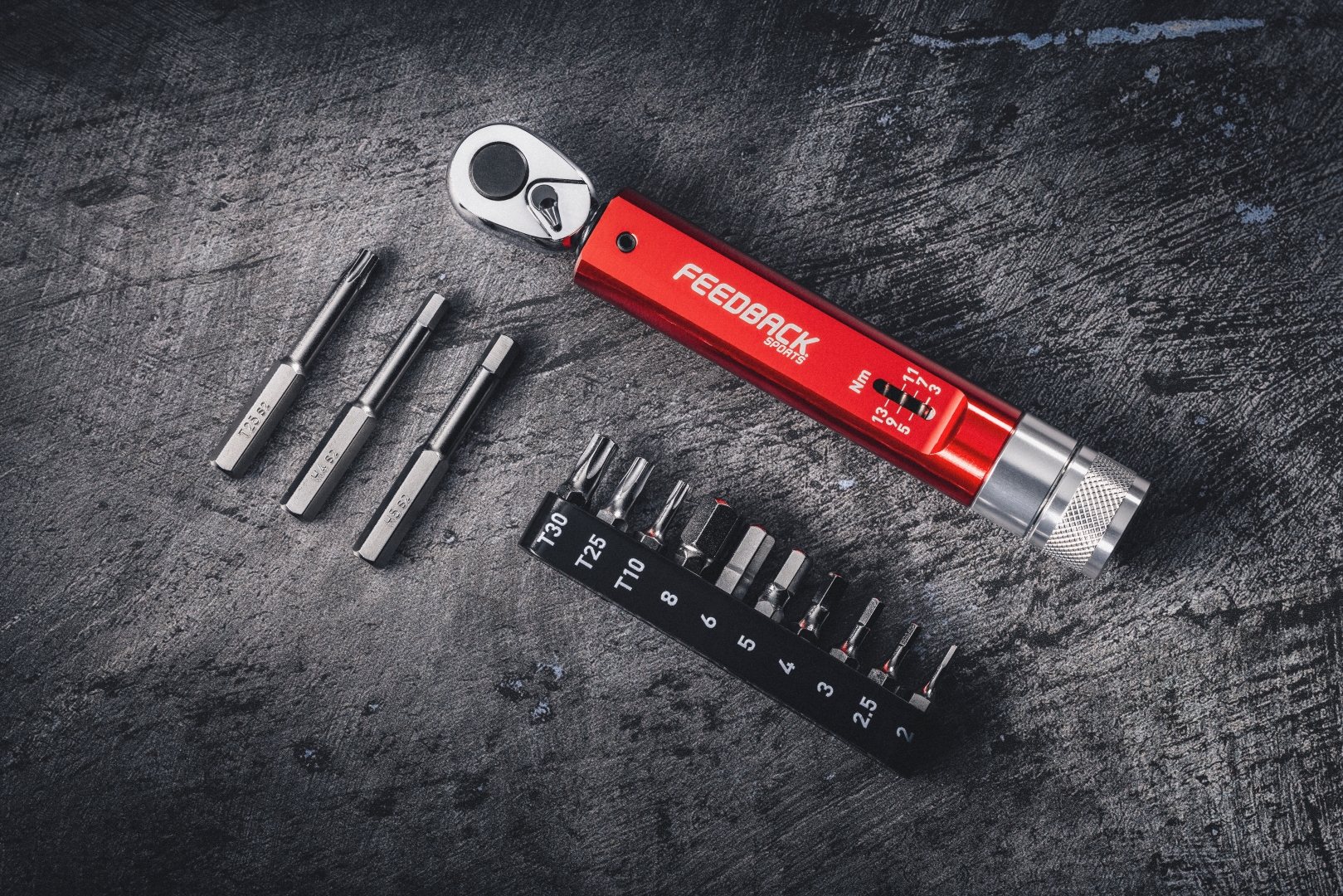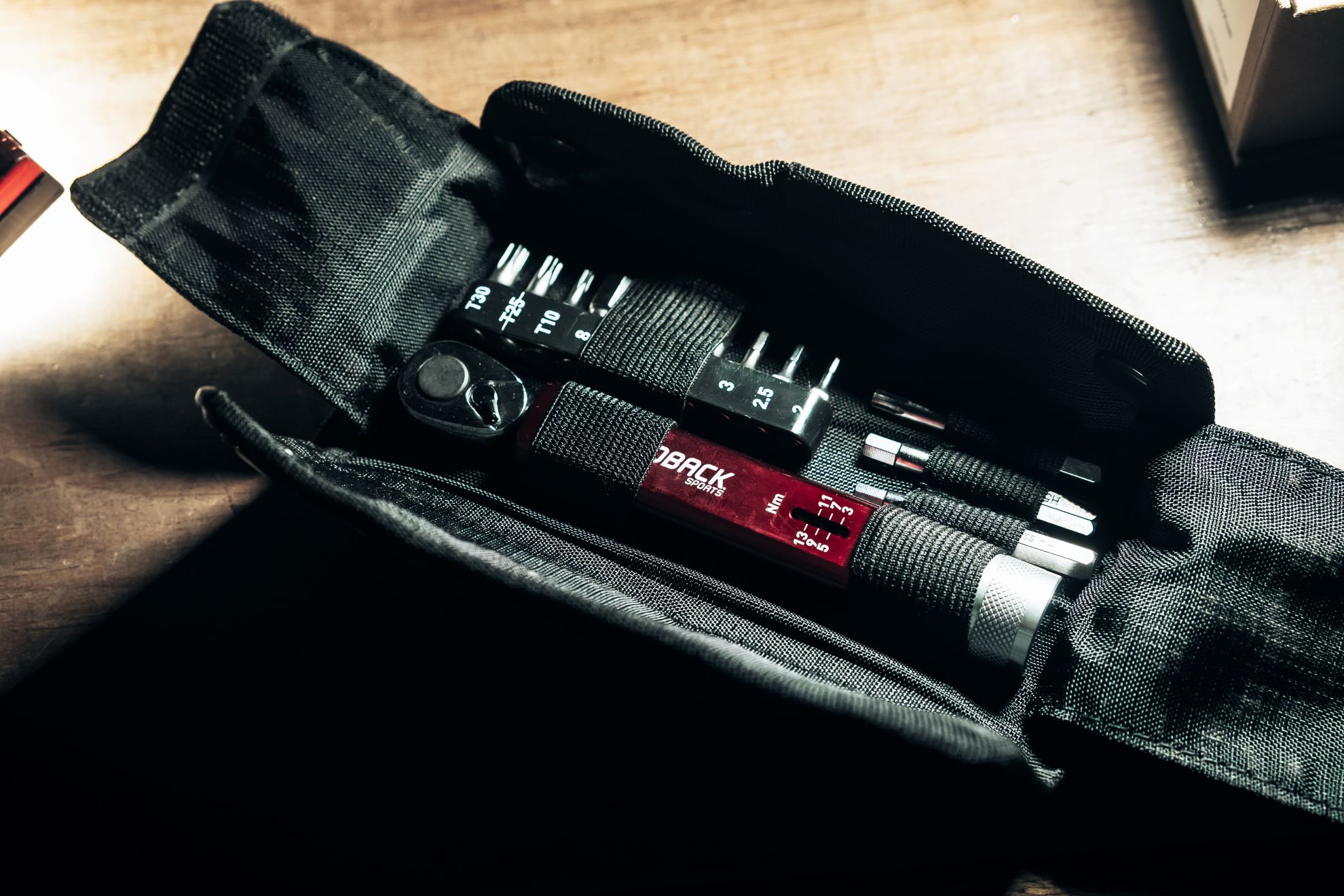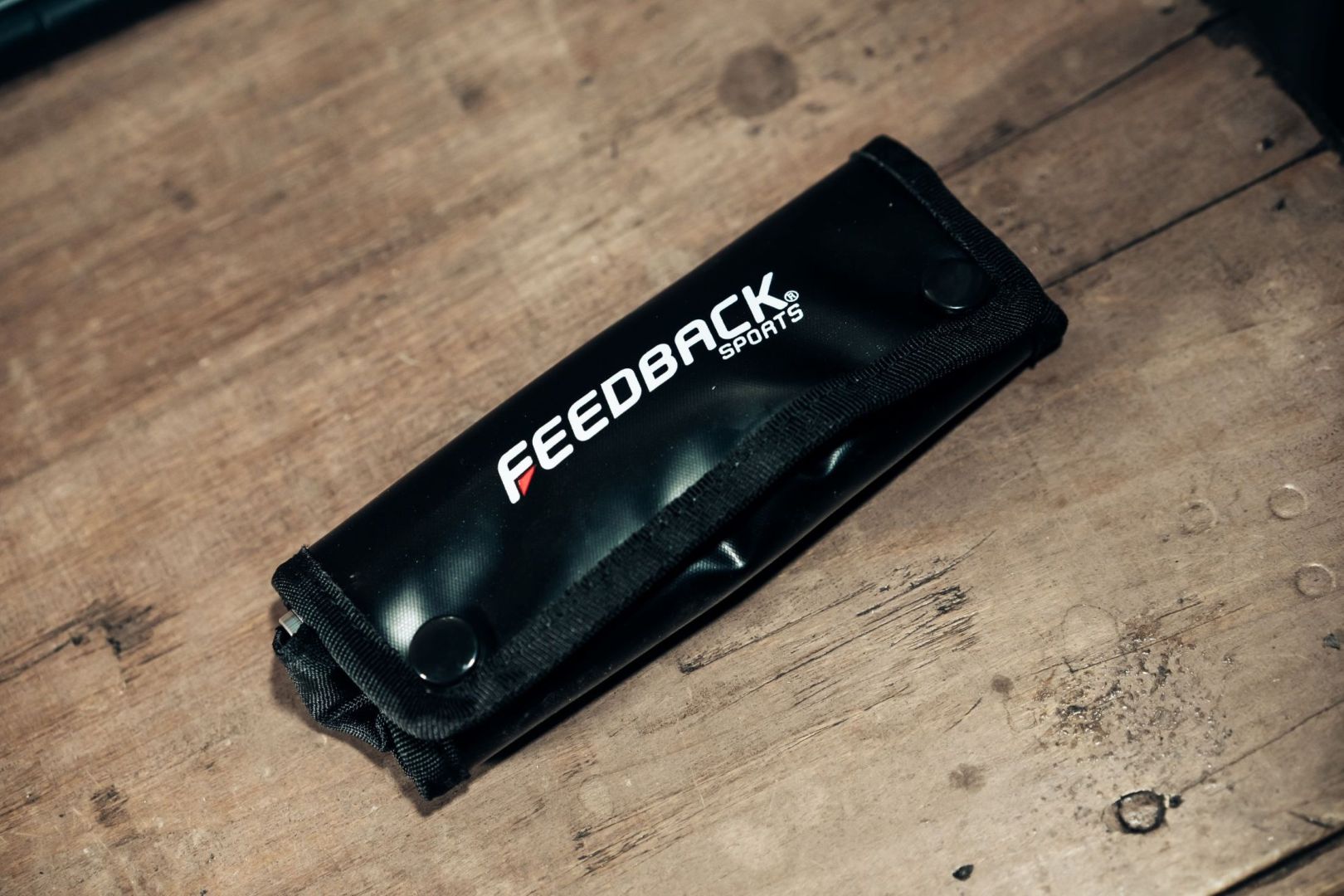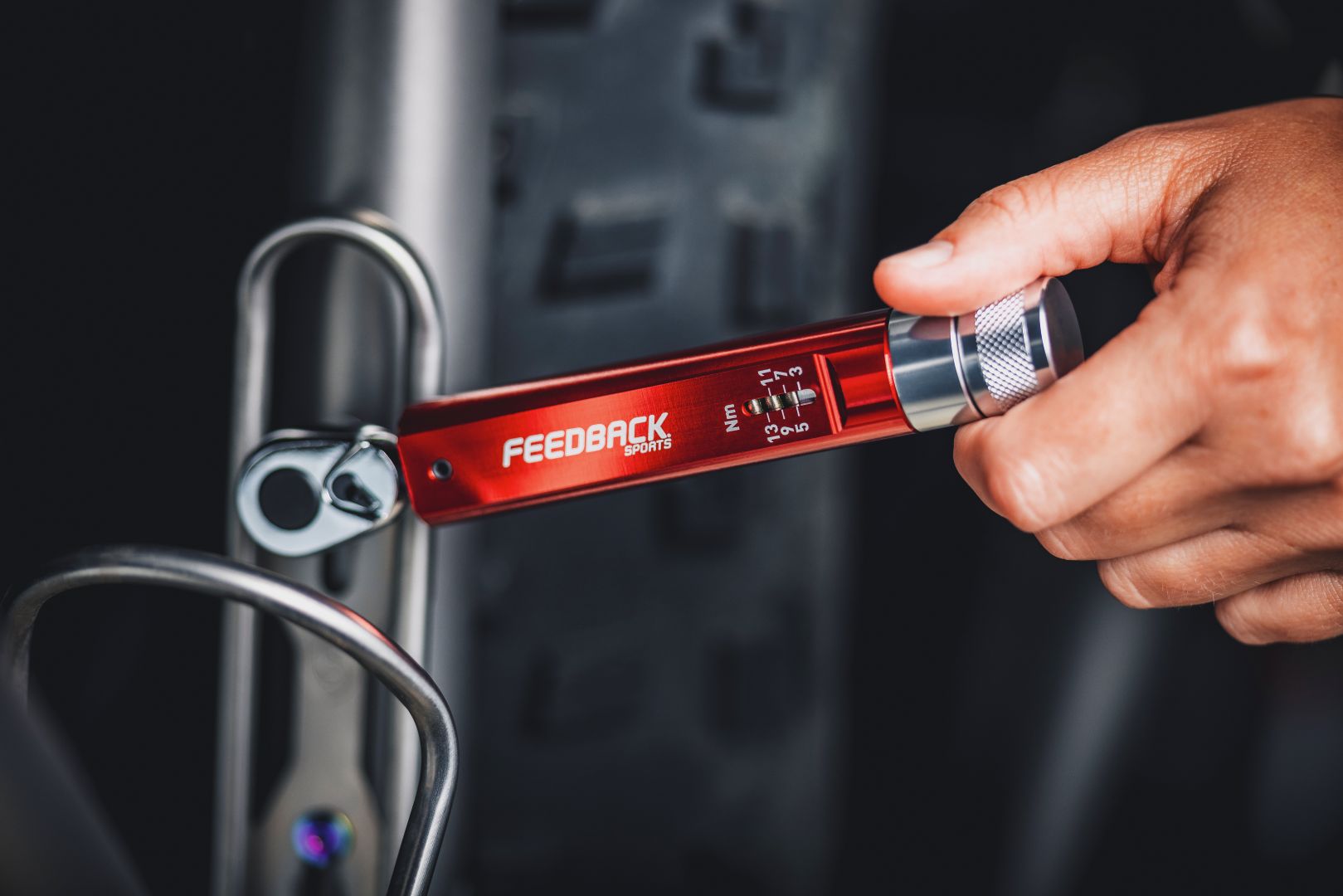
Ask any mechanic what one of the most important tools to use when building a bike is, and they will say, a good torque wrench. Why is that you ask? Well, ensuring all the bolts on a bike are torqued in accordance with manufacturer specifications means that important fastenings won’t be so loose that they come undone nor are they so tight that you risk snapping bolts, or worse, your components.
So, while it’s undoubtedly important that anyone working on their own bike uses a torque wrench, we think it’s important that you know how to use one and what to look for when buying one. A good example of a torque wrench is the Feedback Sports Range Click Torque Wrench.

It comes in a roll-up TPU sleeve that also houses 13 high-precision S2 tool steel bits. There are a myriad of popular allen head sizes along with the three main torx heads and three extended bits for those harder-to-reach areas. Despite the metal construction, the tool, tool roll and heads come in under 300 grams, making this a highly packable bundle. Also, the tool itself is plastic free and comes in 80% recycled paperboard packaging
This compact and lightweight package would easily sit at the heart of an on-the-go tool kit, making this an ideal choice for those needing to reassemble bikes in hotel rooms. Equally, it would work well for the at-home mechanic needing to carry out any manner of bike maintenance.

This torque wrench sits in the ‘click head’ category meaning that when you hit the desired torque, the head simply clicks back slightly. This particular torque wrench features double sided torque settings ranging all the way from 2NM to 14NM. On one side, you have even numbers and on the other you have odd numbers. By doing this, it allows for the numbers to be bigger and easier to read - great for accurate day-to-day useability.

To operate, you quite simply spin the base of the tool until the indicator is aligned with your required torque setting. In this case I need 4nm, which I can see printed next to the bolts, so I can then go ahead and attach the required 4mm allen head. I then ensure the bit is spinning in the right direction and, if it’s not, I can use the flip switch. From there I can use the tool to tighten my bolt until it is correctly torqued. For the most accurate torque value when tightening, hold the wrench at the bottom of the tool, then just keep going until you hear and feel the head snap back.
When done, I can remove the tool and carry out the all important final step. That being to spin the base of the tool so that it is reading back at zero and is once again fully reset. It’s very important to do this because if your torque wrench is left at anything other than zero then it will no longer read correctly.
So, that’s the lowdown on how to use a torque wrench and, if you are in need of one, we would recommend checking out the Feedback Sports Range Click Torque Wrench.


.png?w=600)




